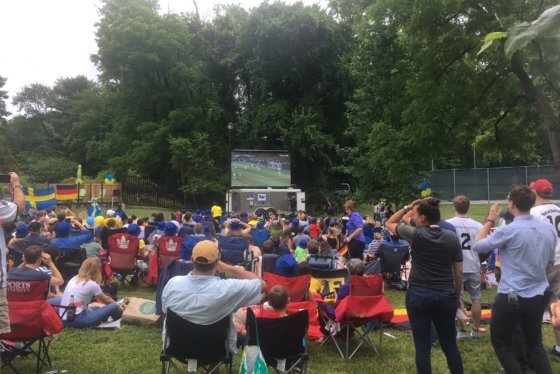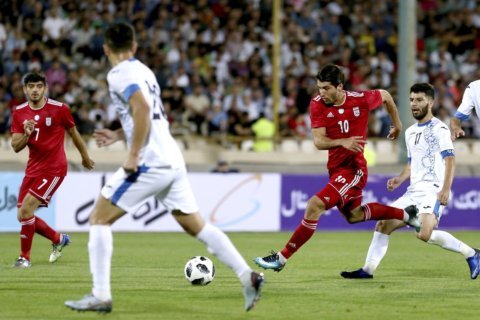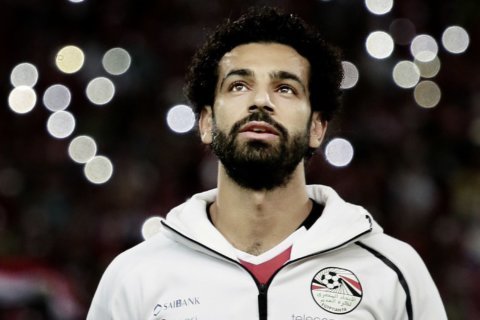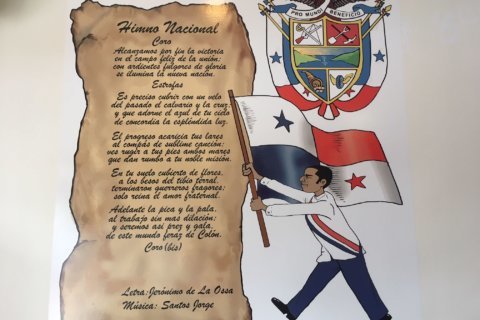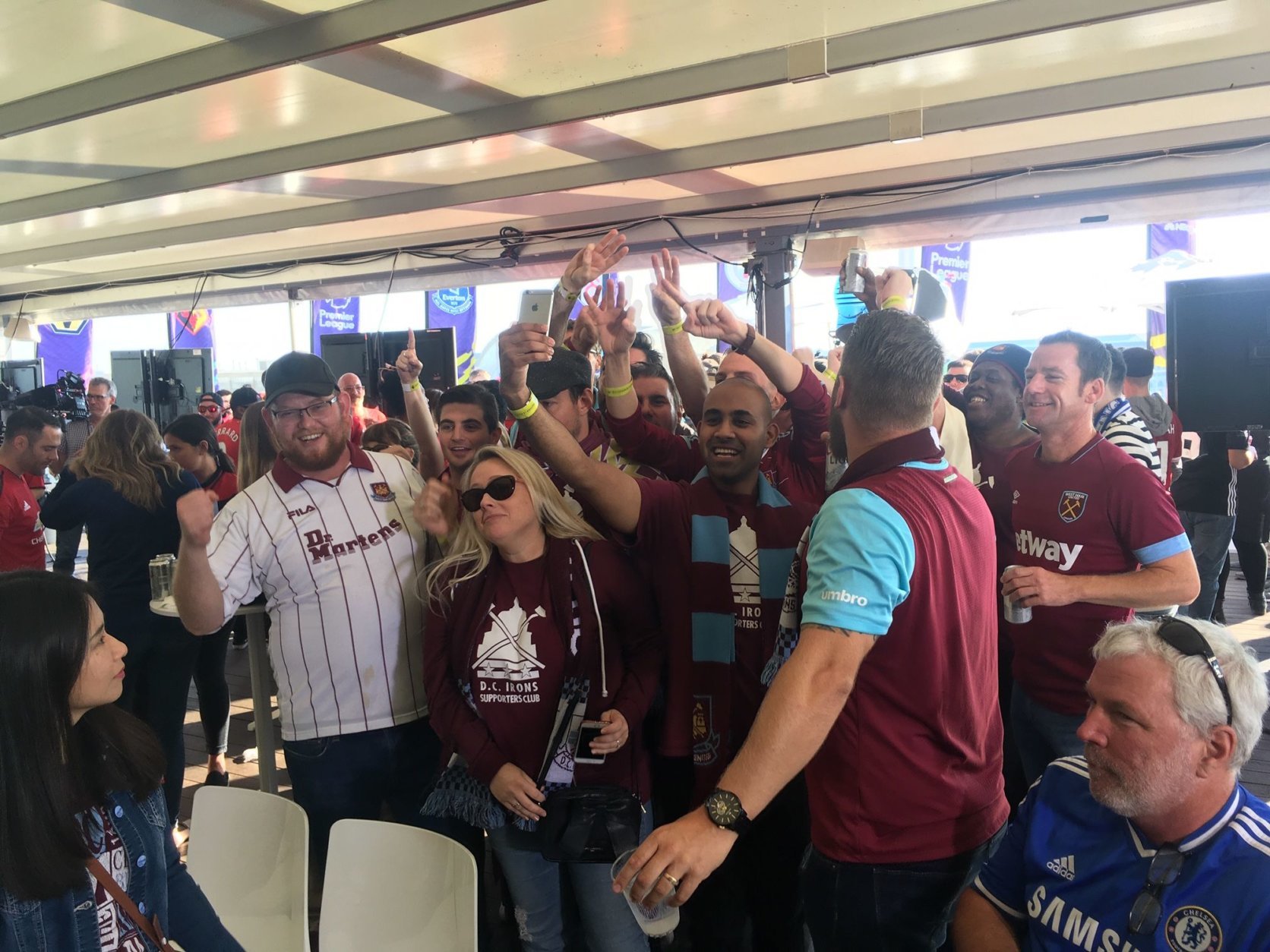
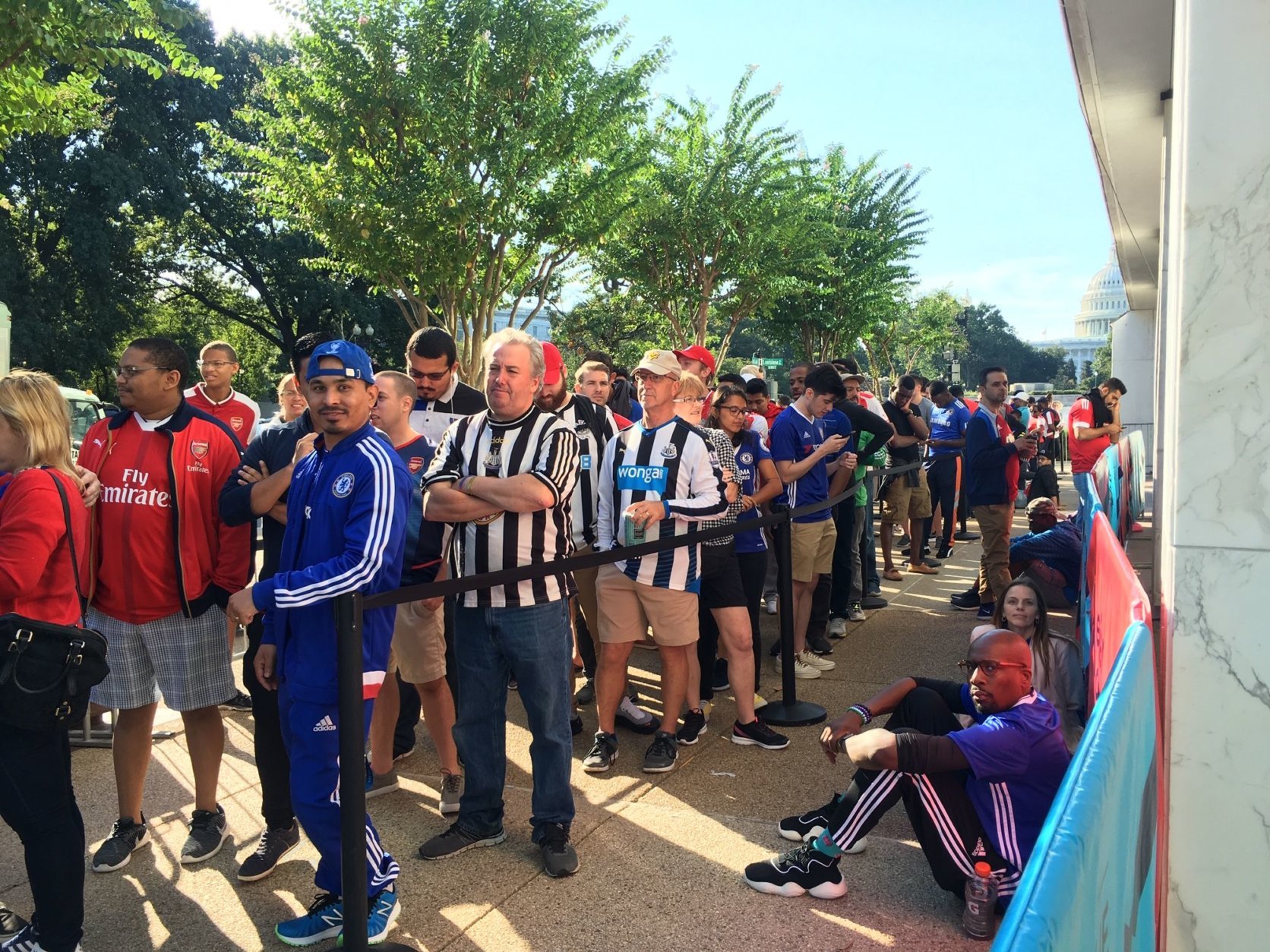
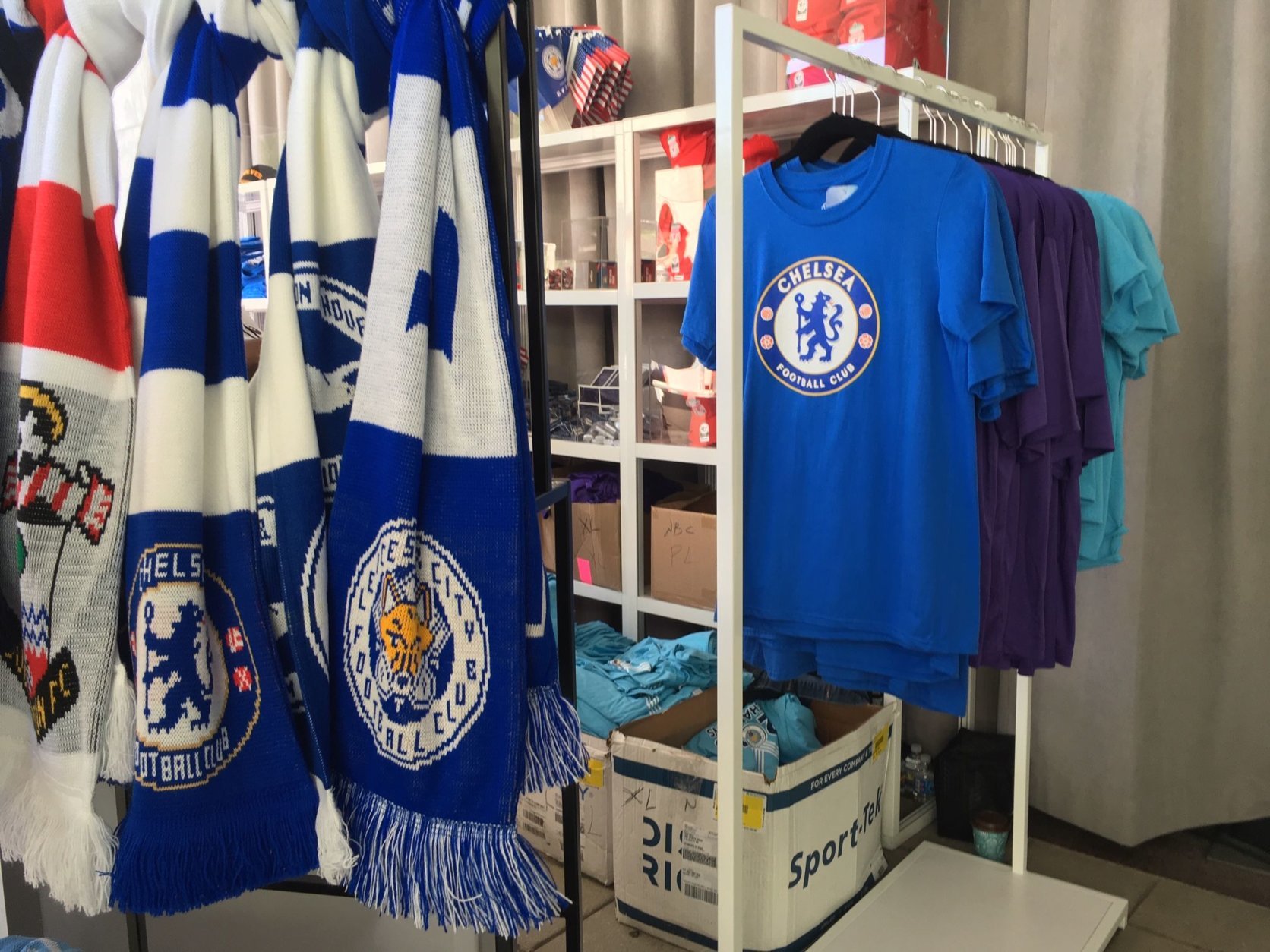
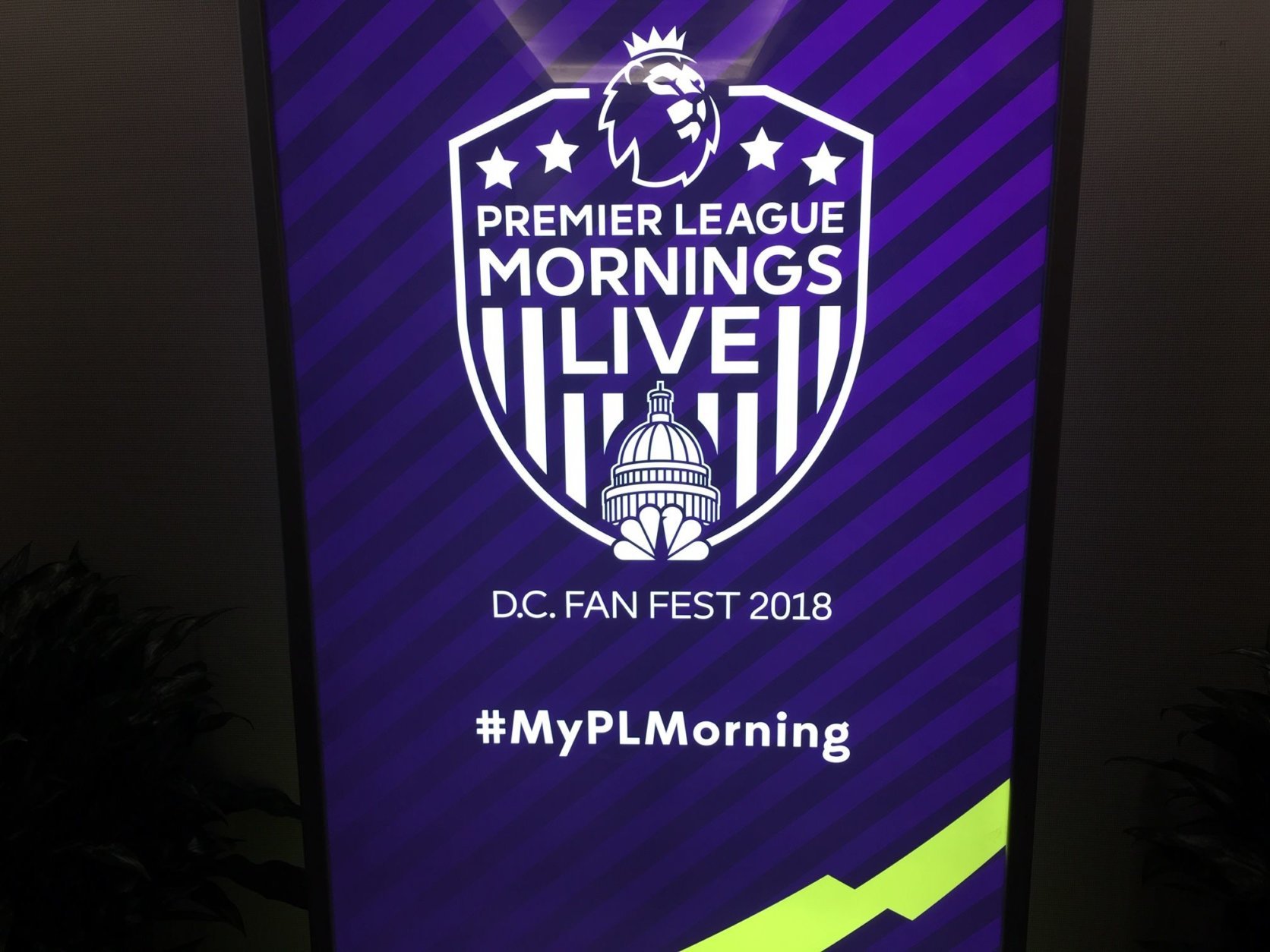
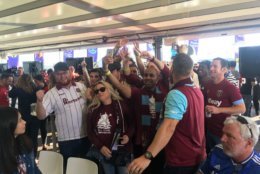
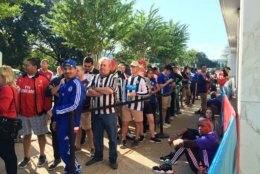
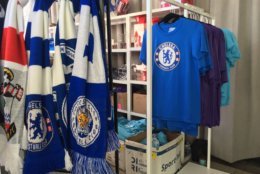
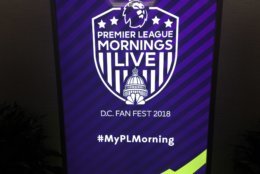
WASHINGTON — When does subculture become simply culture?
If we haven’t yet reached that fulcrum with Premier League soccer fandom in America, the powers that be are doing their best to push us over the ledge. Or, perhaps more accurately, into the light.
Up to this point, Premier League viewership in the United States has been largely confined to dark bars in the Saturday morning hours usually reserved for youth soccer or farmers markets. Those accustomed to the prime-time oriented American sports schedule might find themselves baffled that people would wake up at 7 a.m. on the east coast — that’s 4 a.m. on the west coast and, yes, 2 a.m. in Hawaii — to watch sports. But that’s exactly what happens every week during the Premier League season in homes and bars across America.
“We get up at 6 o’clock in the morning to serve, sometimes, three or four customers, because we want to see the game too,” said Benjamin Jordan, a Chelsea fan and the owner/manager of The Airedale on 14th Street NW.
If there was any doubt that this was just a hardened few obsessives, that was quickly dispelled by the NBC Sports Network Premier League Fanfest event held at Capitol View, about a block southwest of Union Station, in late September. Fans lined up as early as 4 a.m. to enter and about 2,000 cycled through the venue over the course of the three-game slate to join with their fellow fans to play games, eat, drink and watch soccer.
The network tried one of these events on its own last year in New York, and it was successful enough that the league jumped on board as a partner for a series of two or three this year, beginning in D.C. As we know from the last couple World Cups, Washington has netted the highest ratings of any American market, so it’s not a bad place to kick something like this off.
“There’s a good amount of healthy Premier League scenes; there’s an even bigger amount of soccer scenes that are starting to exist in a major way,” said Dan Palla, director of consumer engagement for NBC Sports Group. “I think we’ve got something special, and we’ve just scratched the surface.”
At the opening match of the day, former titans Manchester United continue to struggle and are ousted by West Ham in an upset. As one of the Big Six clubs that dominate money, titles and fandom, it’s not surprising to see a host of red Man U jerseys gathered around the big screen on the rooftop. But there’s a hearty coalition of Hammers, as they call themselves, maybe two dozen, reveling in a rare victory over a top side.
There are 25-30 total members of the D.C. chapter of the group, a number of which get together at Fado Irish Pub in Chinatown each weekend to watch. One such member is Tariq Khan, a native of Trinidad and Tobago, who first latched on with a Hammers club when he lived in Toronto, then found the D.C. group when he moved for graduate school.
“These guys have been absolutely amazing,” said Khan of his fellow group members. “We spend every Saturday usually losing, but today we won.”
The group, like Washington, is diverse, with a heavy dose of both Brits and Americans. Costia Karolinsky is a wild-haired Bostonian who latched onto the team as an adolescent thanks to a crush on Kiera Knightley, who supports West Ham. But he found kinship in the fan base as it reminded him of Boston’s own sports fans.
“West Ham is the working class of London,” he said. “They’re not uptight; they’re not posh. They’re real.”
Like many American sports fan bases, the connection extends beyond simple wins and losses.
“It’s more about the culture and the singing and the history,” said Karolinsky.
“We love our team through and through,” Khan said. “No matter what, this is our identity. This is who we are.”
***
Over at Lucky Bar in Dupont Circle, a more typical Premier League Saturday is unfolding. The official home for Manchester United, Manchester City and Arsenal, the backroom is full of Gunners fans for kickoff of the second window of games, at 10 a.m. That leaves the front room for a steady trickle of Man City fans, who file in to the bar to see their side for a home match against Brighton, a game without too much fanfare that they are expected to win fairly handily. Still, the die-hards are here.
Joe and Stephanie Donati have made the 35-minute Metro pilgrimage from their home in Rockville, which they do about twice a month. Raised in the Steelers country of Western Pennsylvania, both grew up football fans, though Joe played soccer. But it wasn’t until they moved to Texas, then to Washington State, as young adults that they really got into soccer as fans.
Like Karolinsky, Joe Donati found himself relating to Manchester City as a perennial underdog back in 2003, similar to his Pittsburgh teams. And while he’s seen the sport catch on in the places he’s lived as an adult, he’s not sure it’s ready to translate quite yet back at home.
“I think so here. Where we’re from, though, I don’t even know if people would know what the Premier League is,” he said. “Depending on where you are, there’s very different levels of who’s into it.”
Stephanie Donati agreed, pointing out that D.C. has the right formula for Premier League culture to thrive.
“That’s definitely something that makes D.C. unique, is being able to sort of have this United Nations within itself,” she said. “D.C. has its own culture, but it’s just such a conglomeration of people from all over the world and all over the U.S., too.”
The Donatis sat with their friend, Tim Sergon, a Maryland native born to Kenyan parents. He couldn’t explain why exactly he ended up a Man City fan, but he’s continued to connect with fellow fans over the years.
“It’s a very personal decision who you end up rooting for,” he said. “It kind of depends on how the team’s doing, but there is kind of a makeup of the individuals that root for a team.”
As anyone who has left school and started to make their way in the working world can attest, making new friends in adult life can be challenging. Without the natural social groups that school structures create, things like Premier League soccer fandom can fill that void, providing a common denominator and a shared passion to bond around.
“I think a thing that’s underrated is that it’s really hard to find this community,” said Sergon. “It’s a lot harder to find as you get older. I think that is a key reason why I keep coming back here, even for random Tuesday afternoon games to watch Champions League.”
“Especially if you’re not as outgoing, it’s a really helpful buffer,” said Joe Donati. “You come into a situation where you already have something to talk about. From there, you can take it out as far as you want.”
***
Back at The Airedale, Benjamin Jordan is sitting on the second-floor deck watching Chelsea play the “late” game of the day, a 12:30 p.m. opening kick. The early starts are actually a bonus, so far as he’s concerned. With the games only about two hours and 10 minutes long, and commercials only during halftime, the time investment is far less than most American sports, and the last game is done by 3 p.m.
“Then you go on and you have the rest of your day,” said Jordan.
Growing up around D.C., Jordan was a football player. It wasn’t until later in life that he picked up his father’s Chelsea fandom and basically stopped watching American football altogether. He thinks soccer may start to fill the void left by those less interested in football, particularly around D.C.
“Part of it comes at the NFL’s expense, especially in this region. We had a wildly popular football team that’s now quite unpopular for reasons of their own doing, almost entirely. And people are hungry for things. D.C. United can step in there, and they have,” he said.
The changing attitudes around football and soccer also resonated with the Donatis.
“We used terms to describe soccer players that were not nice,” said Stephanie Donati about her Western Pennsylvania upbringing.
And while she still can’t get over things like players diving and embellishing injuries, she says she wants her nieces and nephews to play soccer instead of football.
More than just the sport itself, Jordan is adamant that the social experience is what sells people on fandom, whether at his establishment or elsewhere.
“Go watch a game at a bar. It’s a different experience from watching a game at your house,” he said. “It’s a lot easier to get into the culture of something or to find it more enjoyable if you’re finding it enjoyable with other people who also have a passion about it.”
NBC, with events like the one at Capitol View, is hoping to make that communal experience more accessible, as well as more visible.
“We need to get it out of the dark bars. We need to get it out of these small living rooms, and family gatherings, and things like that, and put it on display in a really big way,” said Palla, from NBC Sports Group.
But like anything, there’s an appeal to the niche culture of it all, to keeping it as something of an open secret between friends on a Saturday morning, dressed in matching kits and scarves.
“I think there’s something nice about having it be, not a cult following, but kind of like that, where it’s the best of both worlds,” said Sergon.
“It definitely is becoming more mainstream. However, I think there is something to be said about the dark bar,” said Stephanie Donati. “We take a 35-minute Metro ride to come into the city to watch a game at this place in particular, because this is where you meet. I think there’s something special about that. People want to hold onto that.”

